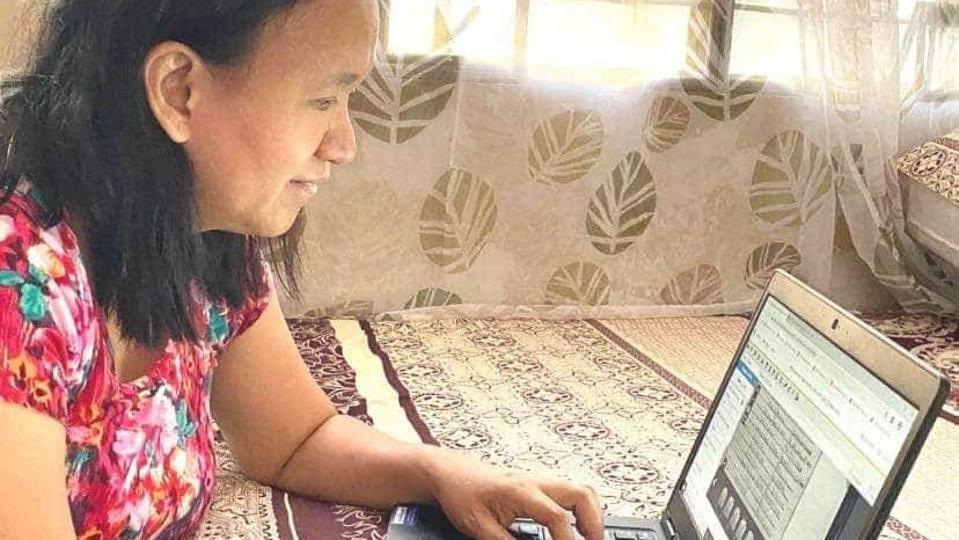For more than 100 years, FamilySearch has been preserving invaluable archival documents including census records, birth, death, marriage, military and property records, and other vital records maintained by government agencies.

To make these records accessible online, the non-profit organization launched FamilySearch Indexing or simply indexing. It allows images of historical documents to become searchable digitally.
Through the voluntary services and effort of indexers, mostly members of The Church of Jesus Christ of Latter-day Saints, these images are converted into searchable data.
Indexing in the Philippines
- FamilySearchIndexing_July2020-1.jpg
- FamilySearchIndexing_July2020-2.jpg
- FamilySearchIndexing_July2020-4.jpg
- FamilySearchIndexing_July2020-3.jpg
| Temple Square is always beautiful in the springtime. Gardeners work to prepare the ground for General Conference. © 2012 Intellectual Reserve, Inc. All rights reserved. | 1 / 2 |
In the Philippines, there was an average of 800 indexing volunteers before the government imposed the community quarantine. In April 2020, that number peaked as high as 3,700 and is now at a steady average of 2,500 volunteers actively indexing on a weekly basis.
The quarantine presented the perfect setting: people locked in at home and devote time to volunteer work. Although virtually, Church leaders from stakes (dioceses) around the country rounded up members to participate in locally organized indexing marathons.
Before March 2020, the average records being indexed were 40,000. One month into the lockdown, the country saw a spike of 500,000 records indexed within one week.
As of July 2020, volunteers are indexing an average of 250,000 records a week. This totals to 3.1 million indexed records in the Philippines, the bulk of which was accomplished while in the middle of the pandemic.
Indexing Enables Family Connections
Latter-day Saints believe that family relationships can continue beyond the grave. Hence, it is significant for them to look back and learn of one’s forebears and heritage through genealogical documents. Anyone who has done family history research can tell that there is an innate sense of connection felt when one finds a record of his or her ancestor.
Indexing Fosters Selfless Service
In addition to strengthening family relationships, indexing helps foster a love for service in the community. Anyone who can read and type on a computer and has access to the Internet can participate. When one finds a precious record of his lolo [grandfather] or lola [grandmother], there comes a natural inclination to “give back’. Indexing enables people to participate in an ongoing effort to make family history records searchable.
Those interested to help in the global indexing effort may register for free through the FamilySearch website. Once registered, one can participate in indexing and choose from hundreds of projects from countries all over the world.
An indexer is given between 1-10 pages called a batch to index at a time. Once done and submitted, the indexed records will be checked for accuracy by other volunteers called reviewers. After this process, the indexed information is uploaded to the database and is used to display search results to users of FamilySearch.org.
Persistence Amidst a Pandemic

The COVID-19 pandemic has crippled a lot of endeavors, but it has created opportunities to serve. It has proved that a global community service such as FamilySearch Indexing could persist and even prosper in a virtual setting.
The family is the primary source of happiness. Family connections are at the heart of FamilySearch Index. From each indexing volunteer’s submitted batch comes innumerable possibilities for family discovery for others. Ultimately, these family discoveries bring joy to people’s lives, and especially during these difficult times, a little joy can go a long way.
About FamilySearch
Formerly and historically known as the Genealogical Society of Utah founded in 1894, FamilySearch is a service provided by the Church and is the largest genealogy organization in the world. The use of the service is free for those interested to do their family history work.
To learn more and participate in FamilySearch Indexing, please visit FamilySearch.me/indexing.